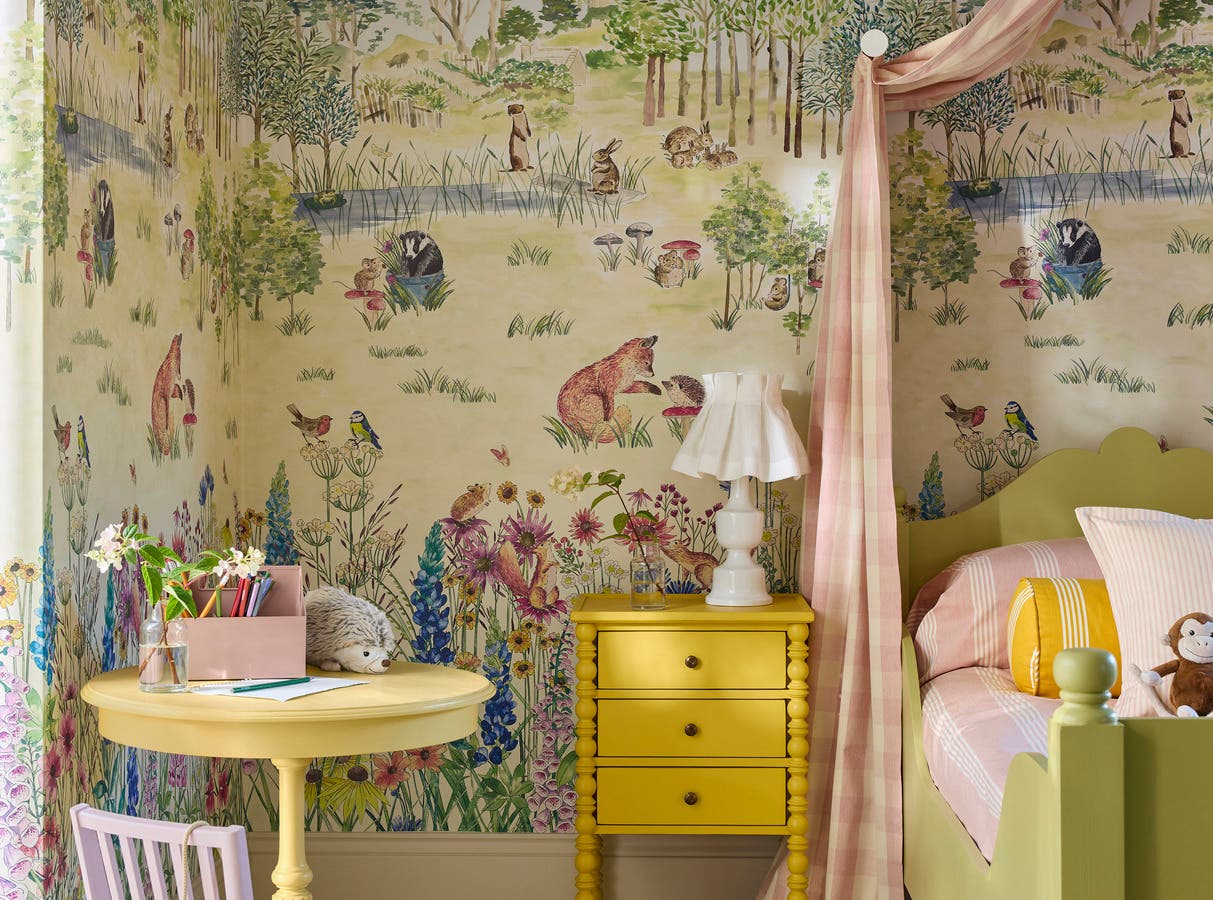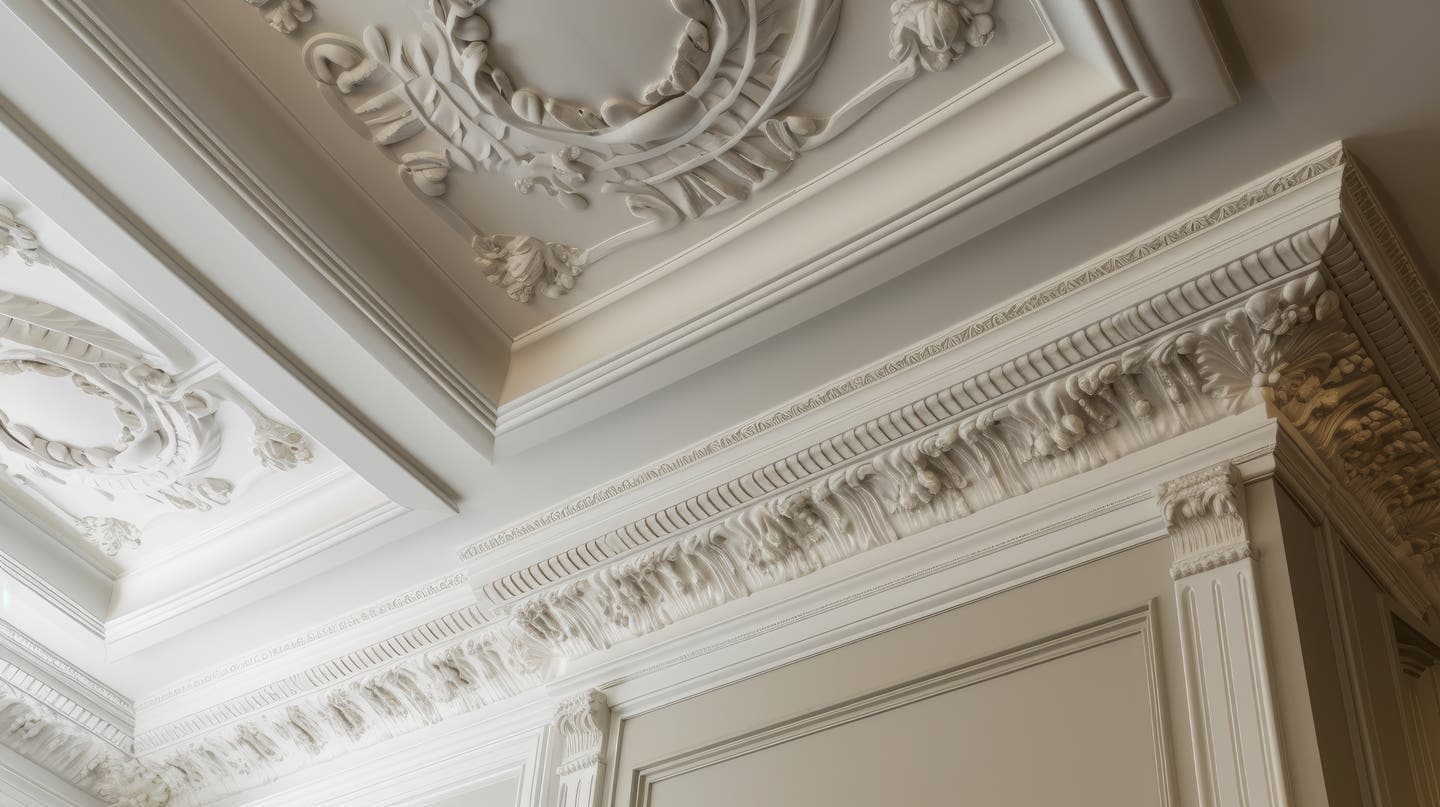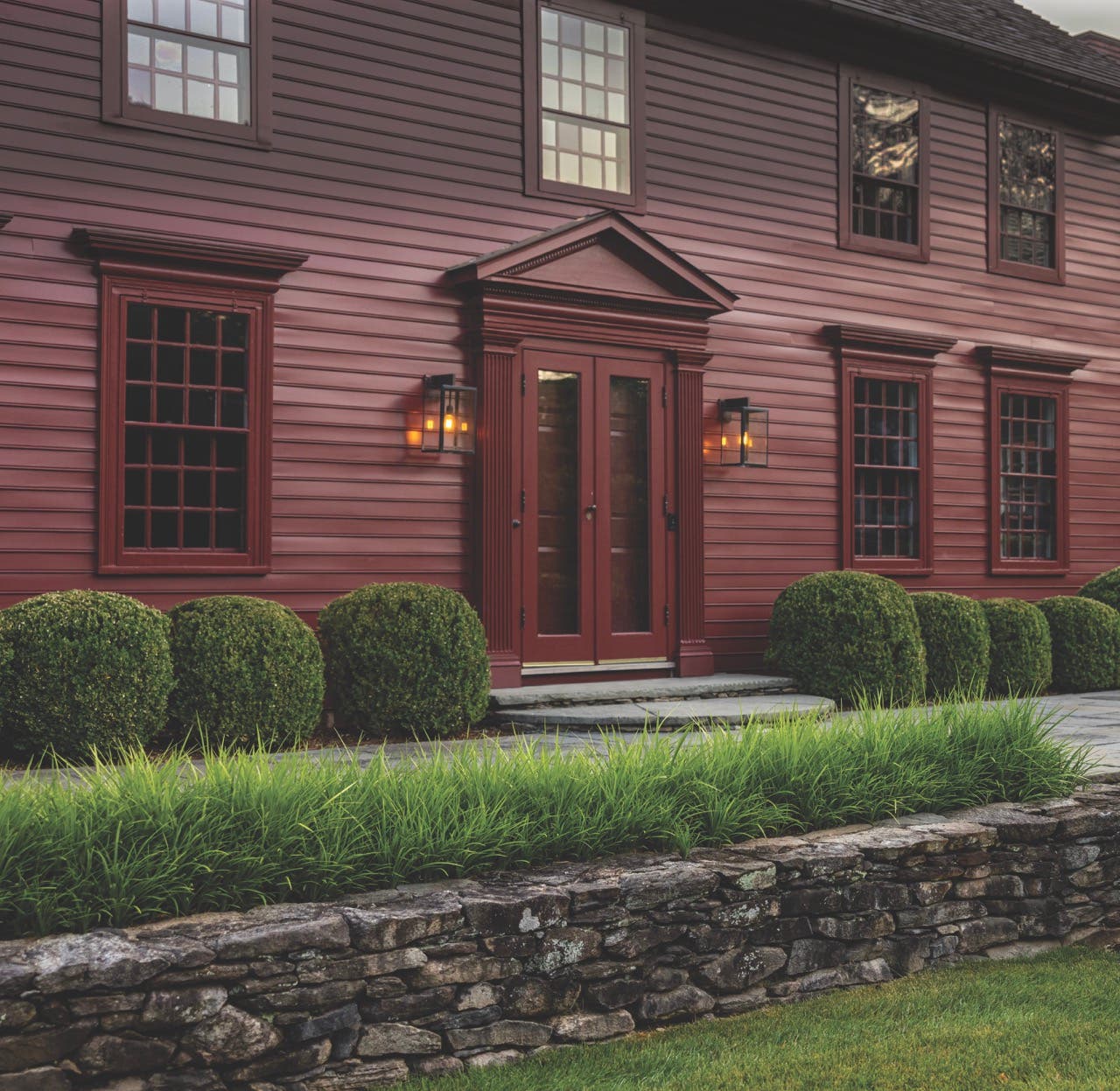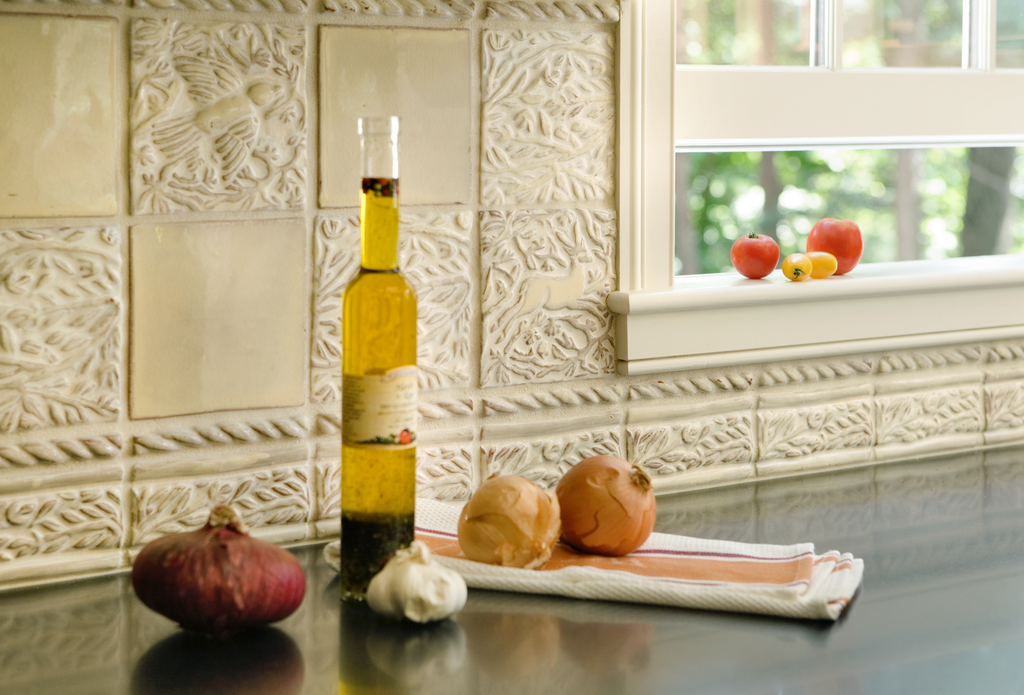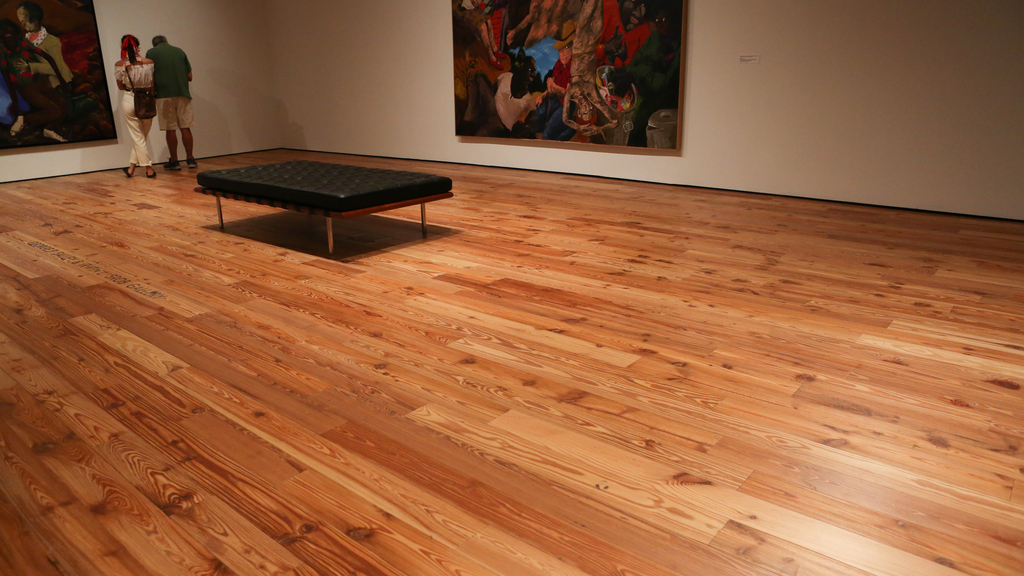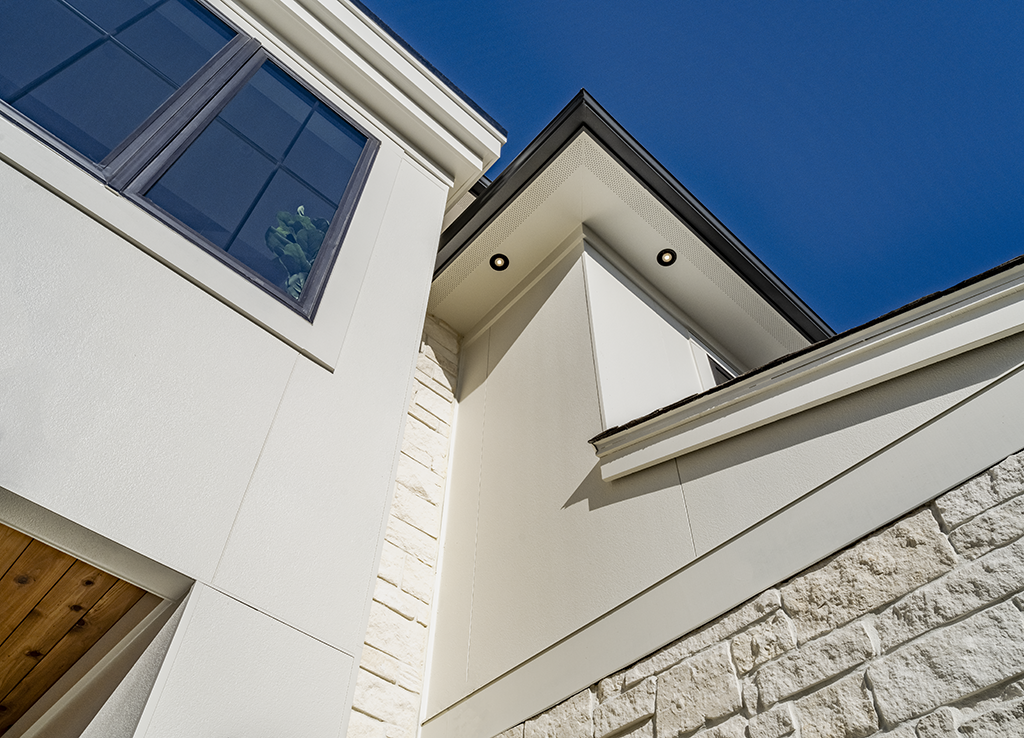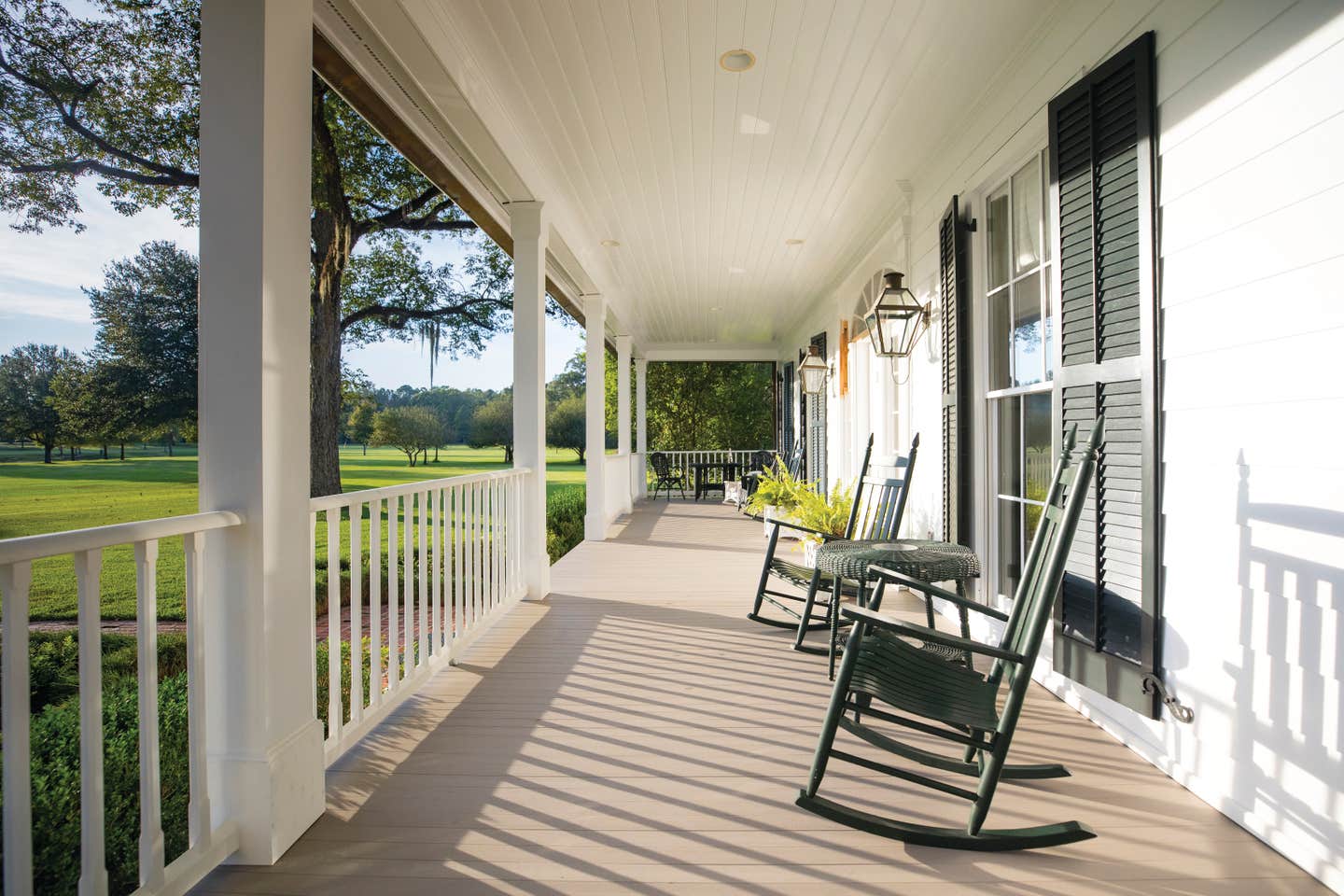
Product Reports
Perfect Porches
The porch is much more than a place to cool your heels during the dog days of summer. It’s a gathering spot, a social center where people shoot the breeze while basking in the cool evening breezes. And after a long period of decline, it’s making a comeback as people everywhere recognize the health benefits of creating close-to-nature sanctuaries such as pergolas and spending time outdoors.
Here are some of the specialist companies that make it their mission to promulgate the tradition of the porch.
Aeratis Porch Products
“We only create or replicate products from the early 1800s,” says Chris Tidwell, vice president of sales and marketing for Aeratis Porch Products. “We would not produce a product that does not have historical precedence.”
The product line of the designer/manufacturer Aeratis, which is based in Tempe, Arizona, includes historical style porch flooring, ceilings, stair treads, trims, and custom shutters. The products are made using historic colors and paintable PVC, and the pergolas feature hidden aluminum I-beams. During the summer, the company plans to introduce new pergola system products.
Aeratis focuses on the porch because it’s a significant stage where the everyday events of life are played out. “It’s the backbone of America,” Tidwell says. “We grow up, visit, eat, party, have our first kiss, and maybe even propose on a porch. There are more business deals, family plans, and heartbreaks that occur on a porch versus an office, business, or boardroom. How can we not be passionate about where we live and work?”
Boston Turning Works
For more than 40 years, Boston Turning Works has been producing precise, historically accurate finials and providing custom turning services for column bases and caps, balusters, and porch and newel posts for clients around the country.
The family-owned and -operated company, which is based in Tiverton, Rhode Island, specializes in finials, newels, and balusters made of Spanish cedar and mahogany for porches and pergolas as well as for a variety of other interior and exterior projects.
“Finials are one of the earliest forms of architectural ornamentation,” says Spencer Plaud, who bought the company in 2018 and who learned the craft under master wood turner Thomas Duarte a quarter-century ago. “Originally crafted of stone by the Greeks, finials have been used throughout history to add detailing to gates, fences, railings, balustrades, posts, and arbors.”
At Boston Turning Works, which was established in 1978, Plaud uses a variety of vintage tools, as well as CNC machinery, to produce replications from clients’ physical samples or historical photos. The company also has a line of finials it produces from its own collection of historical profiles. “Our attention to detail, extensive experience, and ability to do all sizes of jobs set us apart,” Plaud says.
Boston Turning Works has done work for new-construction projects and historical buildings. One of its more recent projects was carving balusters for the Malden Public Library in the city of the same name in Massachusetts.
“We love helping customers bring their vision to life,” Plaud says.
Chadsworth Incorporated
Specializing in classical columns, Chadsworth Incorporated also supplies parts as well as everything needed to build pergolas.
The family-owned company, established in 1987, produces products in wood, PVC, PolyStone®, and fiberglass-reinforced polymer (FRP).
Its products have been used in projects throughout the country. The pair of PolyStone® columns behind the lectern at the James S. Brady Press Briefing Room in the West Wing of the White House were made by Chadsworth, as were various columns throughout Walt Disney World and its Hollywood Studios in Orlando, Florida.
“Each material has its pros and cons,” says Jeffrey Lynn Davis, CEO and founder of Chadsworth, which is based in Wilmington, North Carolina. “Wood is best—it has the finest details—for high-end projects where the columns/pergolas will be maintained. PVC and FRP are great in harsh weather conditions, but you can take a step back in detailing when products are cast versus cut.”
The company’s stock designs come from historical plates, but most of the projects are designed by architects. “Our expertise is in our years of experience and training in classical architecture, which began with my involvement with the Institute of Classical Architecture & Art,” says Davis. “I’ve used the knowledge I gained from ICAA to build more classically correct columns.”
During the pandemic, in fact, the company developed new lines of classical columns—Premier Architectural Wood and two tiers of Premier Architectural PolyStone®—based on the new codified rules developed by a group of architects from the ICAA.
“Columns tell a story,” Davis says. “From their creation and use in Greek and Roman history, columns can inspire certain feelings and a human connection to the project at hand. From robust and strong to minimal and understated, columns can be the ‘grande dame’ welcoming you home.”
Mid-Atlantic Timberframes
“We can design and build any structure designed for people to enjoy the outdoors that has heavy timber posts, columns, and beams,” declares Samuel Ebersol, general manager of Mid-Atlantic Timberframes.
The company, which is based in Paradise, Pennsylvania, uses a combination of new and old technology: CNC machines to get the most precise cuts up to a thousandth of an inch and timber chisels to fine-tune mortise holes and edges.
“I learned my skills from my grandfather by being in his woodworking shop from a young age,” Ebersol says. “Most of our employees also learn traditional woodworking skills through generation-to-generation exposure. A lot of our employees are Amish and have honed their craft because it was passed down from their fathers. Our skills are part of our DNA.”
The company, which can design from scratch or replicate historic-style porches, uses high-quality Douglas fir timbers that are treated with a high-quality stain to withstand natural elements ranging from wind and rain to snow. They are sourced from sustainably managed forests that have regrowth programs.
In some commercial projects, however, the Douglas fir timber is reinforced with steel; the combination allows the engineering of extremely long spans in the construction or renovation of large spaces.
The 25 employees at Mid-Atlantic Timberframes are passionate about their work.
“Outdoor spaces are at the heart of joy, relaxation, or refuge in homes or commercial spaces alike,” Ebersol says. “The fact that we get to build dedicated areas for entertaining where so many memories are made is impactful. It is exciting to our team to be handed a blank slate and to have the opportunity to create a backyard oasis or a porch as part of a commercial project that people will enjoy for decades.”
Timber Build
Formerly known as Pro Wood Market, Timber Build manufactures a variety of porch and pergola parts using a combination of traditional styling and methods and computerized design tools.
In addition to decorative joists, beams, posts, brackets, braces, railings, lattices, gable brackets, decking, and tongue-and-groove pieces, Timber Build produces door awnings, garage and window trellises, and timber-framing components for porches and portico entrances.
Established in 2007, the family-owned and -operated company, which is based in Lilburn, Georgia, creates its designs in house, transferring computer-generated designs into CNC-milled templates that are used to produce handmade products.
“We draw inspiration from a variety of traditions but primarily from the Craftsman style and through our collaboration with customers,” says Joshua Newell, company spokesman. “We typically use western red cedar, which is a great choice for exterior and interior architectural millwork. Not only does it look great, but it’s also highly rot-resistant and works well with stains, paints, and other clear-coat finishes.”
The company, which has a variety of standard products, regularly works with architects, designers, homeowners, contractors, and builders on custom and residential projects around the country.
“Our experience in producing custom architectural millwork, along with a process that is designed to provide an easy and enjoyable customer experience, is what I think sets us apart the most,” Newell says.



